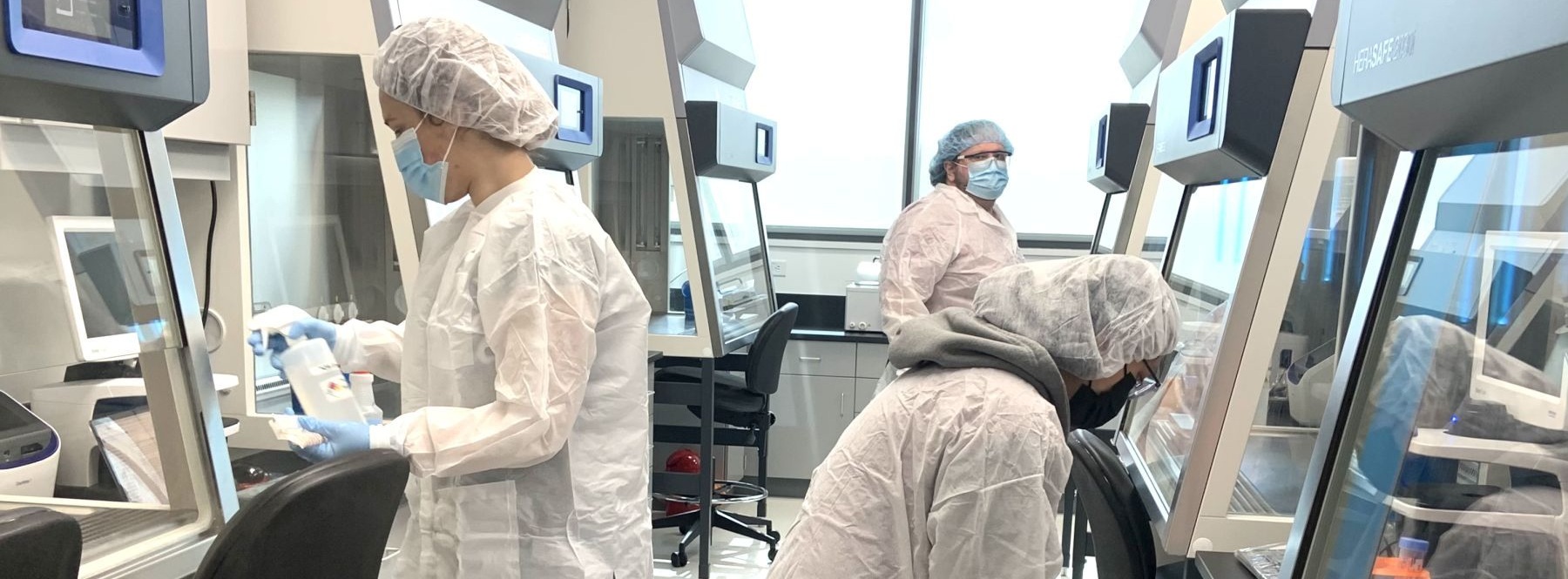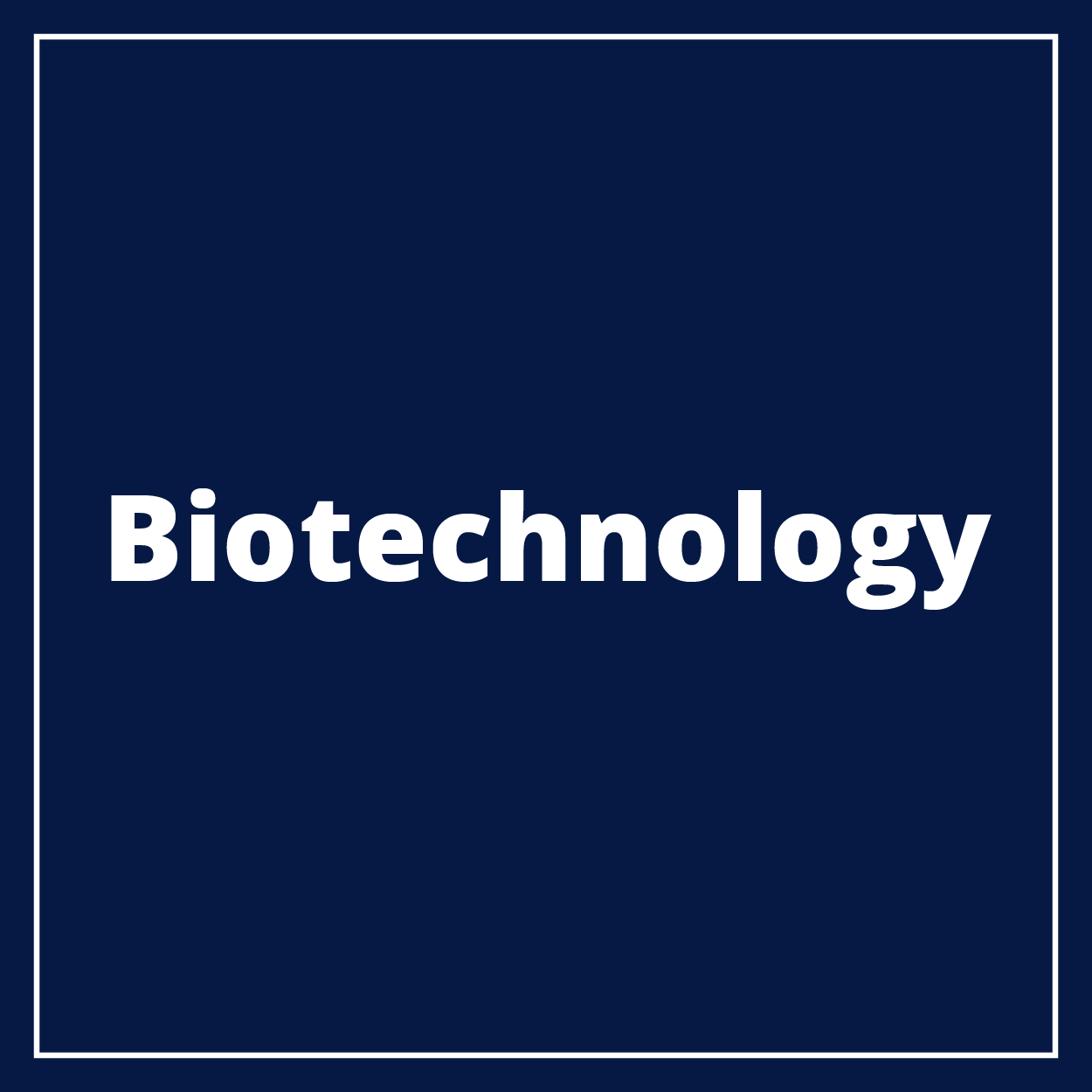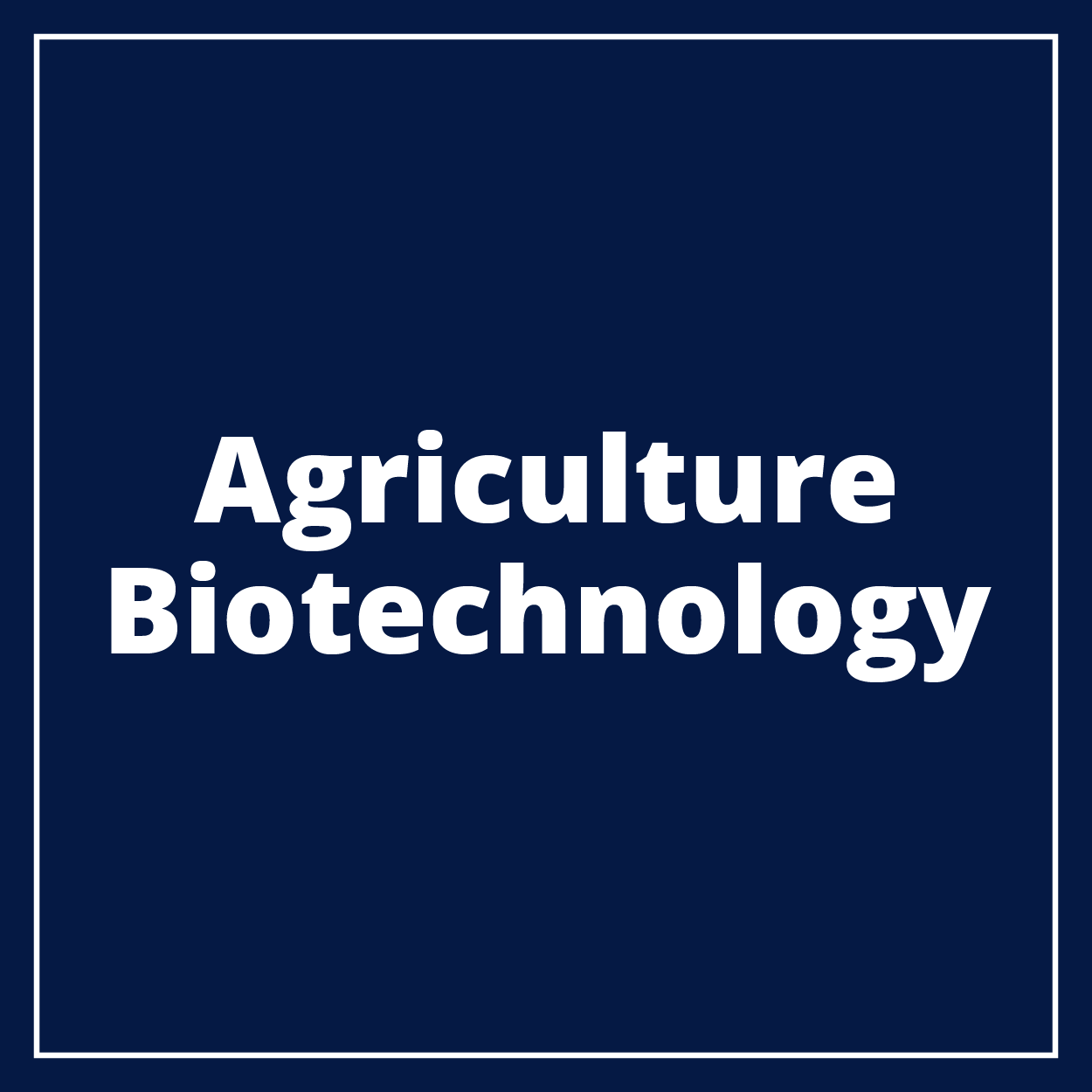Life Sciences
BIOTECHNOLOGY - LIFE SCIENCES
ASSOCIATE IN APPLIED SCIENCE | DIPLOMA | CERTIFICATE
This program will train you to work as a research assistant or technician within a variety of industry and research based settings. As a student, you will gain hands-on experience in a new state-of-the-art facility. You will receive extensive laboratory skills necessary to enter the workforce or continue your education elsewhere.
This program focuses on the application of the biological sciences, biochemistry, and genetics to the preparation of new and enhanced agricultural, environmental, clinical/healthcare, and industrial products.
North Carolina continues to be in the top five states in the country as far as ranking
for life science jobs and number of companies. We have over 800 life science companies
in NC, and over 70,000 jobs as of 2023 (WoW Report, 2023).
Essential Functions and Technical Standards Requirements
Purpose Statement:
All students in the Biotechnology program are expected to meet certain essential
functions/technical standards which are essential for successful completion of all
phases of the program, and which reflect industry requirements and standards. The
following technical standards represent the essential nonacademic requirements of
the Biotechnology Program that a student must master to successfully participate in
the program and become employable. To verify the students’ ability to perform these
essential functions, students may be required to
demonstrate the technical standards/essential functions.
Meeting these technical standards does not guarantee employment in this field upon
graduation. Ability to meet the program’s technical standards does not guarantee a
student’s eligibility for any licensure, certification exam, or successful completion
of the program.
Standard |
Definition of Standard |
Example(s) of Technical Standard |
| Critical Thinking/ Problem-Solving Skills |
Gain the ability to measure, calculate, reason, analyze and synthesize, integrate and apply information as it pertains to a laboratory. |
Read and comprehend relevant information in textbooks and scientific literature; identify problems related to laboratory results and determine appropriate course of action; apply safety precautions prior to use of chemicals and reagents; recognize errors and modify performance as needed; problem-solve unexpected observations or outcomes of laboratory procedures. |
| Interpersonal Skills | Ability to collaboratively work with all biotechnology students and program faculty in the classroom and student lab. |
Interact appropriately with persons from a variety of social, emotional, cultural and intellectual backgrounds; employ basic conflict management skills. Demonstrate the ability to work independently maintaining composure and competence under stressful situations. |
| Communication Skills |
Demonstrate effective written and oral communication or alternate methods in the primary language of the institution. This includes, but is not limited to, reading, following instructions, and other forms of communication. |
Writing: The ability to communicate effectively in legible written form. Speaking: The ability to verbally communicate understandably in English. Reading: The ability to read, understand, and follow directions printed in English. Technology Use: Ability to use appropriate hardware and associated software, navigate Moodle and the |
| Mobility/Motor Skills | Possess manual dexterity and fine motor skills to perform safe and effective laboratory procedures. | Ability to manipulate small objects with fingertips or adaptive devices; bilateral use of hands or terminal devices that involves coordination and strength; ability to maneuver in the laboratory, around instruments, and in confined spaces. Movement includes utilizing shoulders, arms, and neck; bending; twisting the body; standing; reaching and grasping overhead, in front of the body, and down, prolonged standing or sitting. |
| Auditory Skills | Sufficient hearing to function in a laboratory setting. | Hearing: Demonstrate hearing ability with any type of auditory aid in order to follow verbal instructions; ability to hear alarms; ability to adapt (phone receivers, hearing aids, etc.) |
| Visual | Sufficient vision to function in a laboratory setting. | Visual: The ability to distinguish red color from yellow color; distinguish clear from cloudy; and see through a microscope. Must be able to discern primary colors and/or shades thereof; and differentiate shapes macroscopically and microscopically. |
| Behavioral Skills | Behave in a safe and professional manner in regards to appropriate dress and action required for a laboratory setting. Biotechnology students should be tolerant of a variety of environmental stressors and time management skills. | Wearing safety or other required PPE and approved clothing at all times while working in the lab, regardless of the tasks being performed. Work safely with potentially infectious organisms, samples, and other hazardous materials. Follow specific regulatory guidelines in the laboratory. Remain focused and alert in a fast paced, highly stressful (sometimes unpredictable) work environment. |
Alamance Community College is committed to providing equal educational opportunities for students with documented disabilities. Students who require accessibility services or reasonable accommodations must identify themselves as having a disability and provide current diagnostic documentation to the Accessibility Services Office located in the Main Building, Room 233. All information is confidential. Please contact the Accessibility Services Coordinator for more information at 336-506-4130 or email at accessibilityservices@alamancecc.edu and notify your course instructor of your special needs, as appropriate. Students should initiate this process as soon as possible (prior to the start of classes and/or field experience).
|
Biotechnology Program Estimated Costs and Fees |
|
|
Student Activity Fee |
$35.00 |
|
Curriculum Instructional Technology Fee |
$27.00 |
|
College Access, Parking & Security (CAPS) Fee |
$18.00 |
|
Student Accident Insurance |
$1.00 |
|
Books |
$970.00 |
|
Uniform & Supplies |
$1400.00 |
|
|
|
|
*Includes Laptop/Chromebook use, lab coat and lab fees |
|
|
*Does not include cost of tuition. Tuition will vary from semester to semester depending on the number of credit hours taken. |
|
|
|
|
|
Have you applied for Financial aid? Please visit Financial Aid for instructions |
|
The Life Science & Technology Club is a student run club that has an annual membership and elected board. Students are able to get involved with the club when enrolled in a certificate, diploma or AAS program, and are given free membership into the Parenteral Drug Association (PDA). The club is an official PDA Student Chapter, which gives members access to the Global Professionals Network (GPN) an international student network of the PDA, meet and greets with industry professionals, industry tours, mentoring opportunities and outreach events.
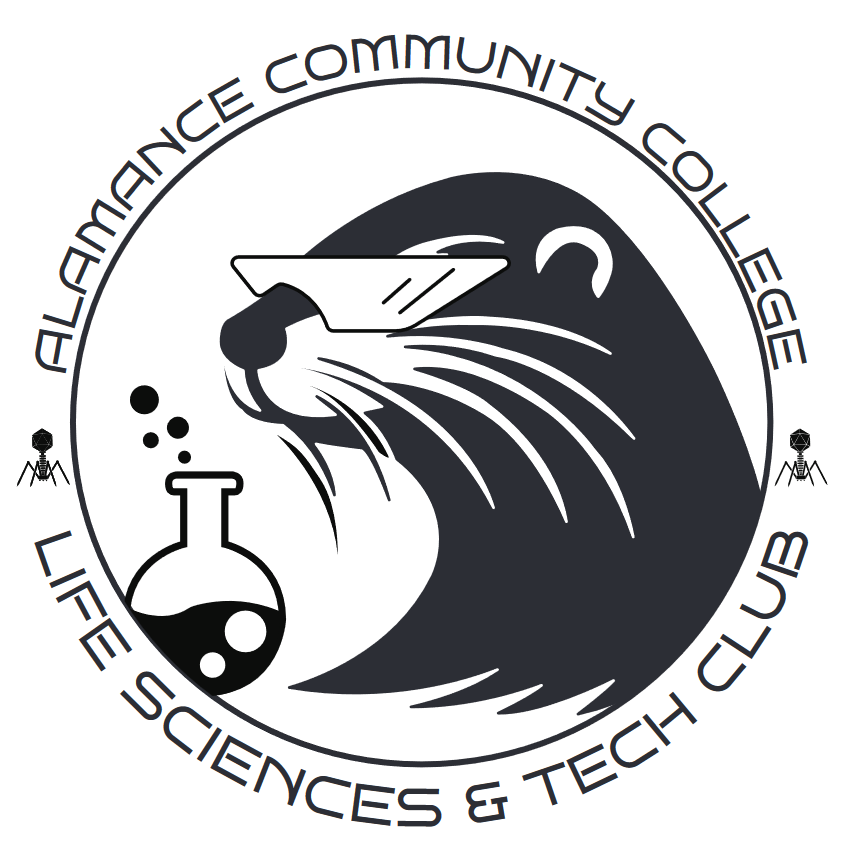 |
 |
Taking life sciences courses in an associate degree program?You could be eligible for a scholarship opportunity! |
Job and Career Success
Tell us your storyQuestions? Contact Us.
Michelle Sabaoun
Department Head
michelle.sabaoun@alamancecc.edu
336-506-4224
Nikita Kelkar
Biotechnology Instructor
nukelkar977@alamancecc.edu
336-532-5052
Meagan Vallejos
Lab Operations/ Project Manager
mlvallejos530@alamancecc.edu
336-506-4284
Dr. Izy Obi
Biotechnology Pathway Navigator
ilobi923@alamancecc.edu
336-506-4293
ACC Biowork
biotechnology@alamancecc.edu
Health & Public Services
hps@alamancecc.edu
Why Wait?YOU BELONG HERE |
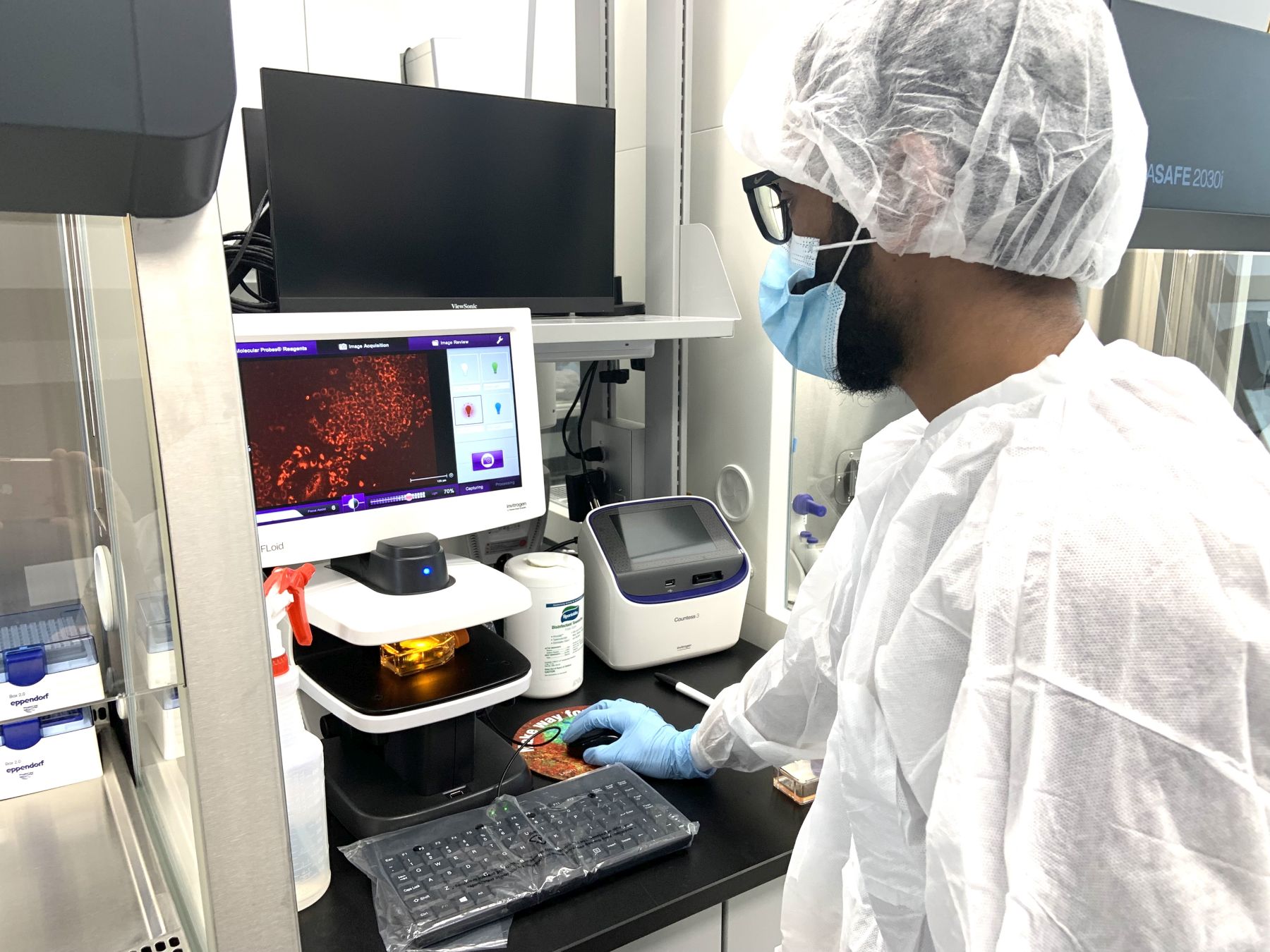
Interested in getting job ready fast?
Check out our workforce development courses!Click on the link below to explore short-term workforce training opportunities.
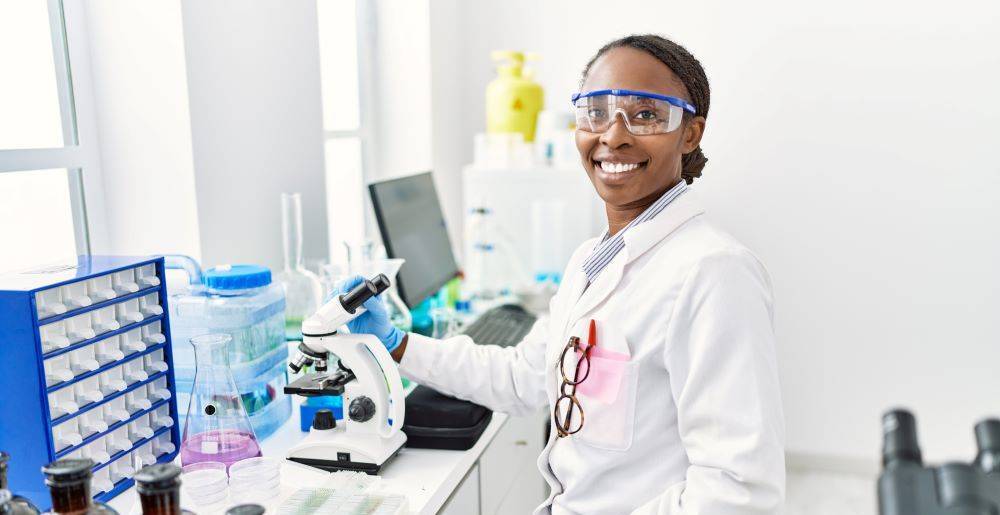
Career Opportunities in the Life Sciences
Unlock your career potential in life sciences!
Visit the career page for current career opportunites in the life sciences field.